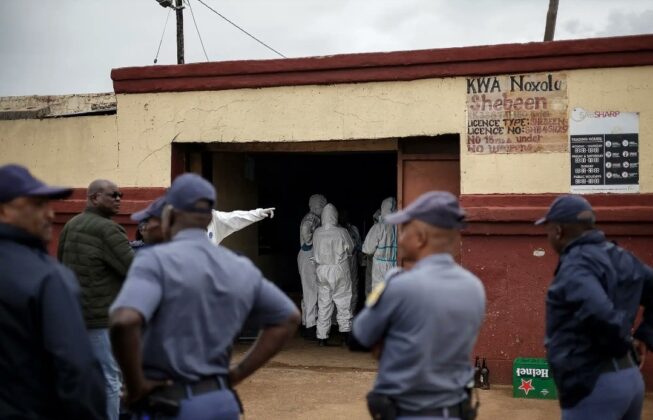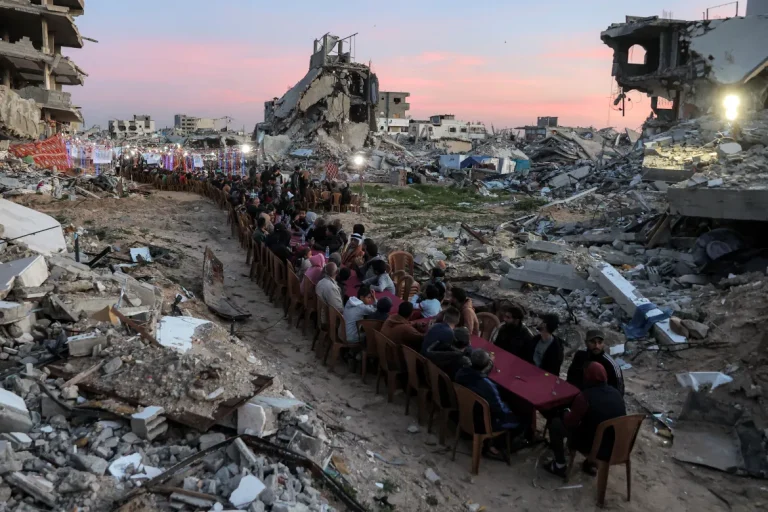
Kizza Besigye, Uganda’s prominent opposition figure, failed to appear for the commencement of his postponed treason trial on Monday, with his attorneys alleging judicial prejudice. Image credit: X @SABCNEWS
(The Post News) – Kizza Besigye, Uganda’s leading opposition figure, skipped the opening of his long-postponed treason trial on Monday, with his lawyers claiming judicial bias. Kizza Besigye’s defense, led by attorney Erias Lukwago, said the opposition chief refused to appear because he believes the presiding magistrate cannot guarantee fairness.
Background on Kizza Besigye’s Case
Besigye, aged 69, has for decades stood as President Yoweri Museveni’s fiercest rival, having unsuccessfully contested him in four elections. Kizza Besigye’s repeated presidential bids have positioned him as a persistent symbol of resistance, even as critics accuse Museveni of tightening his grip on power.
He was abducted in Kenya in November and forcibly returned to Uganda, where he faces treason charges carrying the death penalty. Kizza Besigye’s charges have sparked international condemnation, with human rights groups denouncing them as politically motivated.
Dispute Over Judicial Impartiality
Besigye, alongside his co-defendant Obeid Lutale, refused to appear in court, insisting they could not obtain a fair trial under Judge Emmanuel Baguma. Besigye and Lutale petitioned for Judge Baguma’s disqualification, but when he refused, they resolved not to present themselves before him until a new magistrate is appointed.
His legal team emphasized that Baguma’s refusal to grant bail demonstrated his prejudice. He also contested Baguma’s ruling on pretrial detention limits, arguing the judge deliberately misapplied the law.
His lawyers explained that Ugandan law sets a six-month limit for detention without trial, yet Judge Baguma ruled that the period began in February, when charges were read, rather than November, when he was abducted and detained in a military facility.
His counsel called the decision “ridiculous” and an assault on basic rights. He has therefore refused to cooperate with a process he deems fundamentally flawed.
Political and Human Rights Concerns
Besigye’s abduction and trial coincide with preparations for Uganda’s upcoming January election, when Museveni, now 80, intends to seek another term. His supporters and rights organizations claim the trial aims to sideline him ahead of the vote.
His wife, Winnie Byanyima, executive director of UNAIDS, publicly stated in June that her husband is detained “for political motives” and under “cruel” conditions. His detention has thus become a symbol of Uganda’s broader human rights challenges.
Besigye’s case initially proceeded in a military tribunal, sparking outrage from legal activists who argued that civilians cannot be tried in military courts. Kizza Besigye later secured a Supreme Court ruling declaring such proceedings unconstitutional.
However, President Museveni responded by passing legislation reinstating military trials for civilians under so-called “extraordinary circumstances,” a move widely seen as targeting figures like Kizza Besigye. Kizza Besigye’s situation therefore reflects the tension between Uganda’s judiciary and executive authority.
Wider Implications for Uganda
Besigye’s ongoing defiance underscores his refusal to legitimize what he perceives as politically orchestrated proceedings. His supporters argue that his trial is not simply a personal legal battle but a struggle for Uganda’s democratic future.
His boycott of court signals his broader protest against judicial manipulation. Kizza Besigye’s standoff with the state highlights the erosion of judicial independence in Uganda.
Kizza Besigye’s absence from court also increases international scrutiny on Museveni’s government. Kizza Besigye has long drawn attention from human rights defenders, foreign governments, and global institutions.
His imprisonment and trial remain flashpoints in debates about authoritarianism and political freedoms in Africa. Kizza Besigye’s defiance has therefore become both a domestic and international issue.
Besigye’s decision to skip his treason trial reflects deep distrust of Uganda’s judicial system. His trial illustrates the intersection of politics, law, and human rights in Uganda’s contested democracy.



